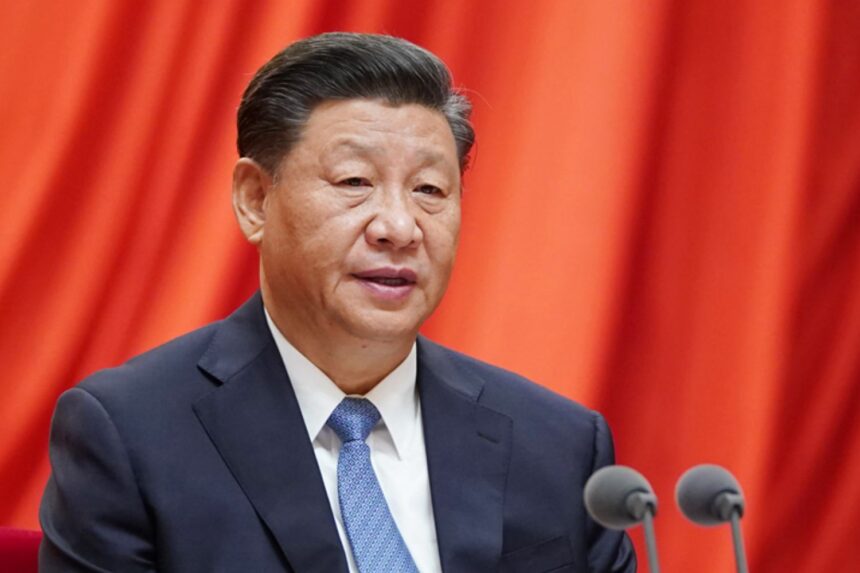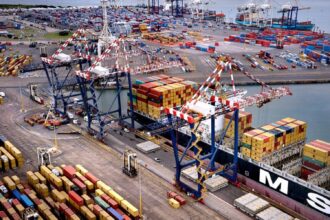In recent years, China has intensified its anti-corruption campaign, led by President Xi Jinping. This campaign, aimed at rooting out corruption within the Communist Party and government, has been lauded for its intent to create a cleaner political landscape. However, it has inadvertently led to a chilling effect among officials, fostering an environment of risk aversion that stifles innovation.
The Anti-Corruption Campaign: A Brief Overview
Launched in 2012, Xi Jinping’s anti-corruption drive has resulted in the investigation and prosecution of numerous high-ranking officials, including members of the Politburo. The campaign has aimed to combat graft and restore public trust in the Communist Party, which has been plagued by scandals. While the drive has garnered significant support from the populace, its implications on governance and administration reveal a more complex narrative.
The Rise of Risk Aversion
As officials face the threat of scrutiny and punishment for corruption, they have become increasingly risk-averse. The fear of being labeled corrupt or facing repercussions for decisions made in the line of duty leads to a conservative approach in governance. Many local officials now prioritize compliance with existing regulations and procedures over innovative decision-making. This shift is particularly evident in areas such as economic development, where the need for rapid adaptation and creative solutions is paramount.
Consequently, officials are often hesitant to push for new projects or policies that could be seen as controversial or untested. The consequences of failure—whether it be financial losses, public backlash, or the risk of being accused of misconduct—are too great. Hence, innovation takes a backseat to maintaining the status quo.
Impact on Economic Growth and Development
The implications of this risk-averse mentality are significant. China, known for its rapid economic growth and technological advancement, may find itself at a crossroads if innovation continues to stagnate. The global economy is increasingly driven by creativity and new ideas, and countries that fail to foster an innovative environment risk falling behind.
In sectors such as technology, healthcare, and renewable energy, where rapid evolution is essential, the reluctance of officials to embrace change could hinder China’s competitiveness on the world stage. Startups and private enterprises may also feel the effects, as bureaucratic hurdles and conservative policies slow down investment and development opportunities.
Balancing Anti-Corruption Efforts with Innovation
To strike a balance between maintaining integrity and fostering innovation, China may need to reassess its approach to governance. While anti-corruption measures are vital, creating an environment where officials feel empowered to take calculated risks is equally important. This could involve implementing systems that encourage transparency and accountability without instilling fear.
Promoting a culture of innovation within the government can also be beneficial. Establishing pilot programs that allow officials to experiment with new ideas in a controlled setting can help build confidence. By recognizing and rewarding innovative solutions—rather than just punishing failures—authorities can cultivate a more dynamic and responsive governance structure.
China’s anti-corruption campaign, while necessary for restoring public trust, has inadvertently created a culture of risk aversion among officials, stifling innovation at a critical time. As the global landscape continues to evolve, it is essential for China to find a way to balance the need for ethical governance with the necessity of fostering creativity and ingenuity. Only through such a balance can the country continue to thrive in an increasingly competitive world.
Historical Context
Historically, corruption in China has deep roots, exacerbated by rapid economic growth and the complexities of a transitioning economy. The political system, characterized by a lack of transparency and limited checks and balances, has often fostered an environment conducive to corrupt practices. The anti-corruption campaign was not just a response to public outrage; it was also a strategic move to reinforce the legitimacy of the Communist Party in the eyes of the Chinese people.
The Fear Factor
The fear of repercussions has led to what some analysts describe as “bureaucratic risk aversion.” Officials often prioritize safety over innovation, which can result in a culture of conformity. Decisions that could lead to significant improvements might be shelved if they carry perceived risks. This mindset can hinder not only local governance but also broader national initiatives aimed at modernization and growth.
Impact on Local Governments
Local officials, who are tasked with implementing national policies, feel the pressure of both meeting targets set by the central government and avoiding any semblance of risk. For example, if a local government attempts to push forward a new infrastructure project but encounters obstacles, the fear of being blamed for failures can deter them from pursuing similar initiatives in the future. This can lead to stagnation in essential public services and infrastructure development.
Innovation Hubs and Private Sector Response
In contrast to the risk-averse behavior of government officials, the private sector in China has been a hotbed of innovation. Cities like Shenzhen have emerged as innovation hubs, fostering a vibrant tech scene. However, the disconnect between government approaches and private sector dynamism may create tensions. While private companies may thrive on creative solutions and agility, they often rely on stable regulatory environments to innovate effectively.
The Global Perspective
From a global standpoint, China’s innovation strategy is critical for its economic ambitions. The “Made in China 2025” initiative, for example, aims to make the country a leader in high-tech industries. However, if the government officials responsible for facilitating this transition are hindered by fear and risk aversion, the country’s aspirations may be difficult to achieve.
Possible Solutions
1. Reform and Training:
Providing comprehensive training programs for officials on risk management and innovation can help build confidence. Understanding that calculated risks can lead to positive outcomes may encourage more proactive decision-making.
2. Incentivising Innovation:
Establishing reward systems for successful innovative initiatives can motivate officials to take bolder steps. Recognizing and celebrating successful projects can shift the narrative from one of fear to one of opportunity.
3. Enhancing Accountability:
Strengthening the accountability framework can ensure that while officials are encouraged to innovate, they are also held responsible in a balanced way. Proper checks can mitigate extreme risks without dampening creativity.
4. Feedback Mechanisms:
Creating channels for feedback from citizens and businesses can empower officials to make informed decisions. Engaging the public in policy-making can also foster a sense of ownership and reduce the fear of backlash.
The interplay between anti-corruption efforts and the need for innovation is a delicate balance that China must navigate carefully. While the necessity of rooting out corruption is undeniable, fostering an environment that encourages risk-taking and innovation is equally critical for the country’s long-term growth. As China continues to evolve, finding ways to harmonize these objectives will be essential for maintaining its position in the global economy.
ALSO READ: China accuses former defence ministers of corruption













